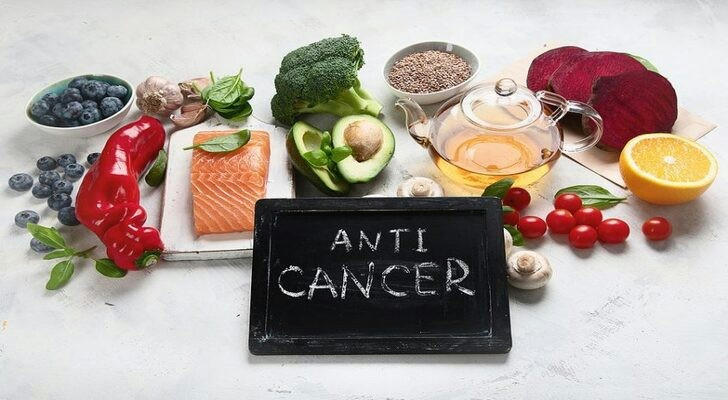How to Prevent Cancer Through Diet: Scientific Evidence and Practical Suggestions

The prevention of cancer is an increasingly important topic in modern health discussions, with diet being a significant factor in this multifaceted issue. While it is crucial to recognize that no single food can completely eliminate the risk of developing cancer, research shows that specific dietary choices and habits can dramatically lower the likelihood of its onset. This article delves into the dietary practices that have strong scientific backing regarding cancer prevention, along with practical tips to integrate these habits into everyday life.
1: Understanding the Link Between Diet and Cancer.
It is well-established that dietary patterns significantly influence the risk of cancer. A notable statistic from the American Institute for Cancer Research (AICR) reveals that approximately one-third of the most prevalent cancers diagnosed in the United States can be attributed to insufficient nutrition, physical inactivity, and excessive body weight. This statistic highlights the undeniable correlation between lifestyle choices and the incidence of cancer, emphasizing the role of nutrition in mitigating this risk. By focusing on a few fundamental dietary changes, individuals can make impactful strides toward improving their overall health and potentially reducing cancer risks.
Two primary dietary modifications can be particularly beneficial in lowering cancer risk: prioritizing the consumption of fruits and vegetables while simultaneously minimizing the intake of processed foods and red meats. This two-pronged approach not only enhances health but can also contribute to a decreased likelihood of developing various forms of cancer.
- Load Up on Fruits and Vegetables
Incorporating a diverse array of fruits and vegetables into the diet is crucial for obtaining essential nutrients that can safeguard against cancer development. These plant-based foods are abundant in vitamins, minerals, fiber, and a wide range of antioxidants, all of which are known to play protective roles in the body. Antioxidants, in particular, are vital for combating oxidative stress caused by free radicals—highly reactive molecules that can lead to DNA damage and promote cancerous growth.
For instance, Vitamin C, which is prevalent in a variety of fruits such as oranges, strawberries, and various bell peppers, not only bolsters the immune system but is also integral to tissue repair and various bodily functions. Furthermore, fiber-rich foods, like whole fruits and vegetables, aid in effective digestion and have been shown to lower the risk of colorectal cancer specifically.
Additionally, the presence of phytochemicals—bioactive compounds found in a wide range of fruits and vegetables—contributes to their cancer-fighting properties. For example, carotenoids, commonly found in carrots and sweet potatoes, have been studied for their role in reducing inflammation and inhibiting tumor growth. Similarly, lycopene, a powerful antioxidant present in tomatoes, has been linked to a reduced risk of several cancers. Thus, making an effort to fill the plate with these colorful choices not only boosts the nutritional quality of one's meals but also provides significant health benefits that extend beyond cancer prevention.
- Limit Processed Foods and Red Meats
Conversely, evidence indicates that a diet high in processed foods and red meat can increase the risk of certain cancers, particularly colorectal cancer. Processed foods—including packaged snacks, ready-to-eat meals, and sugary beverages—often contain unhealthy fats, excessive sugars, and various additives that may contribute to ill health. According to a pivotal study published in the journal “BMJ,” individuals who consume higher amounts of ultra-processed foods tend to have a greater risk of developing overall cancer and breast cancer specifically. This establishes a clear connection between diet and the development of cancer.
Additionally, the World Health Organization (WHO) has classified processed meats, such as bacon, sausage, and deli meats, as a Group 1 carcinogen, which means there is conclusive evidence that these foods can lead to cancer development. The recommendation is to limit red and processed meat consumption to around 18 ounces (cooked) per week to minimize the associated risks. This highlights the importance of being mindful of what is included in the diet and making conscious choices to prioritize health and well-being.

2: Practical Dietary Suggestions.
With a clearer understanding of dietary habits that can influence cancer risk, it is essential to explore actionable steps that people can take to integrate these habits into their daily lives. Adopting simple and practical dietary strategies can lead to significant improvements in health outcomes.
- Add a Rainbow of Fruits and Veggies
One effective strategy is to aim to fill half of each plate with an assortment of colorful fruits and vegetables at every meal. Try to include various colors and types to maximize the intake of different nutrients and phytochemicals. This not only makes meals visually appealing but also ensures a comprehensive intake of essential nutrients.
- Choose Whole Grains Over Refined Grains
Replacing refined grains with whole grains is another crucial dietary change. Whole grain products such as brown rice, whole wheat bread, and oatmeal are significantly higher in fiber and vital nutrients, both of which can support digestive health and help reduce cancer risk.
- Experiment with Plant-Based Proteins
Incorporating more plant-based proteins into daily meals can also be a smart move. Foods like beans, lentils, and chickpeas provide excellent sources of protein while also being high in fiber and other beneficial nutrients that promote good health.
- Limit Red Meat Consumption
Reducing the intake of red and processed meats is another vital step. Opt for alternative sources of protein, such as fish, poultry, or vegetarian options, at least two to three times per week to lessen cancer risk.
- Stay Hydrated with Healthy Choices
Staying well-hydrated is essential for overall health. Instead of sugary sodas or energy drinks, consider opting for water, herbal teas, or infused water with fresh fruit and herbs to maintain hydration.
- Prepare Meals at Home
Preparing meals at home allows individuals to have better control over the ingredients they use. This control ensures that meals are made with healthier, whole foods and are lower in unhealthy fats, sugars, and preservatives.
- Mindful Eating Practices
Finally, practicing mindful eating can enhance the overall eating experience. Paying attention to hunger cues and slowing down during meals can lead to healthier eating patterns, allowing for better digestion and promoting a sense of satisfaction.

Summary
While it is essential to acknowledge that no single dietary choice guarantees complete protection from cancer, making specific dietary adjustments can significantly reduce the risk of developing this disease. By increasing the consumption of fruits and vegetables, minimizing processed foods, and being cautious with red meat, individuals can take proactive steps toward a healthier future.
Incorporating these practices not only aids in cancer prevention but also enhances overall health, leading to improved quality of life. The journey toward better health begins with small, manageable changes, which can accumulate over time to create profound impacts. Individuals hold the power to make informed dietary choices that contribute to long-term wellness and better health outcomes.
